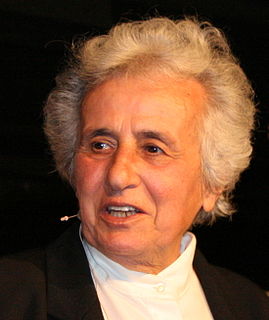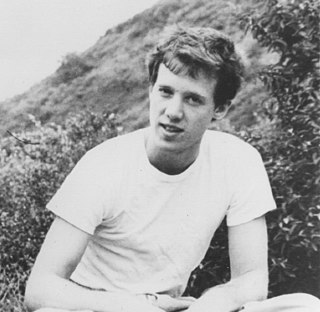A Quote by Danny Glover
[The strike in 1968] brought us together with teachers and also with progressive whites. All of us came from diverse backgrounds, but at the same time the reasons why we were at San Francisco State in the late sixties was because of the agitation and movement building that had occurred within our communities. We saw ourselves not separate from the community but intimately connected to it.
Related Quotes
We were together because we were addicted to each other. I was never as intoxicated as I was when we were happy together, and I knew it was the same for him. We were putting ourselves through the wringer for those moments of perfection between us, but they were so tenuous that only our stubbornness, determination and love kept us fighting for them.
Howard Zinn helped us desegregate Atlanta. That was moving because he took a lot of abuse for that. He and Staughton Lynd, a fellow professor who was also from the North, stood with us. They were certainly behind us. In fact, they often stood in front of us. This had a huge impact on me. But one of the reasons I was very careful about speaking about the relationship I had with him and Staughton was because, in a racist society, if you acknowledge a deep love for and a deep debt owed to white teachers, they tend to discredit your own parents and your own community.
You know, being Jewish is problematic. Most people really don't know what exactly it means to be a Jew. We belong to a community of suffering, and that's what binds us together. But we are also extremely diverse. That's something I wish people who hate Jews as a group because they think they're so different would understand. We're also completely different within our own group! Essentially, we're just part of a community that has suffered a great deal, and not just in the Holocaust.
I realized how for all of us who came of age in the late sixties and early seventies the war was a defining experience. You went o r you didn't, but the fact of it and the decisions it forced us to make marked us for the rest of our lives, just as the depression and World War II had marked my parents.
Peace starts within each one of us. When we have inner peace, we can be at peace with those around us. When our community is in a state of peace, it can share peace with neighboring communities, and so on. When we feel love and kindness towards others, it not only makes others feel loved and cared for, but it helps us also to develop inner happiness and peace.
A lot of people around the world were, like, very frustrated, you know "Why don't you just release the name? Why is it taking so long?" But the cool thing is that it brought people together, like you said, it brought our fans into the experience, it sort of exposed us, exposed the process, and I think it welcomed Mike Magini, because people saw what happened to get to that point.
Che Guevara taught us we could dare to have confidence in ourselves, confidence in our abilities. He instilled in us the conviction that struggle is our only recourse. He, was a citizen of the free world that together we are in the process of building. That is why we say that Che Guevara is also African and Burkinabè.
As kids, my brother David and I longed for acceptance. We were desperate to belong. We would have been thrilled to see the pews of Jones's church in San Francisco, with blacks and whites sitting side by side. And Jim Jones's sermons on social justice and equality would have had much greater appeal to us than the soporific morality tales we were accustomed to hearing. Jones promised real racial equality. He promised to create a truly equal community in the jungle in Guyana.
I was born in 1952, so obviously the sixties were important. That's when I came of age. It was also a revolutionary period, a complete break with the generation before us in terms of culture, literature, music, and in politics, of course. 1968 was an important year; I was 16, and the world became clear to me, visible, so to say.



































